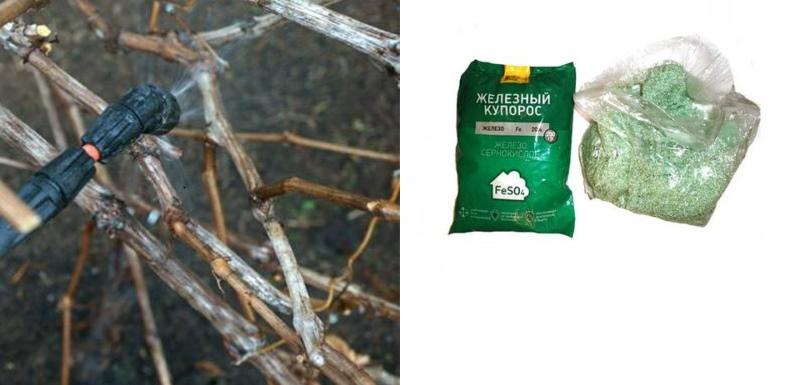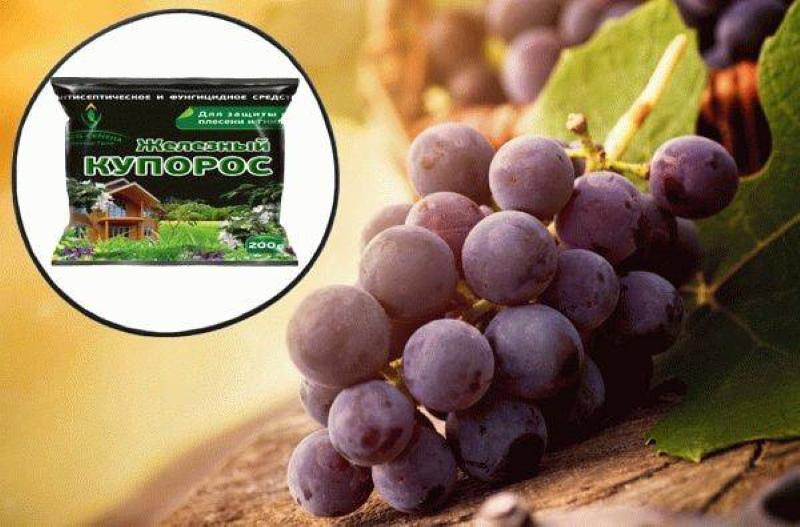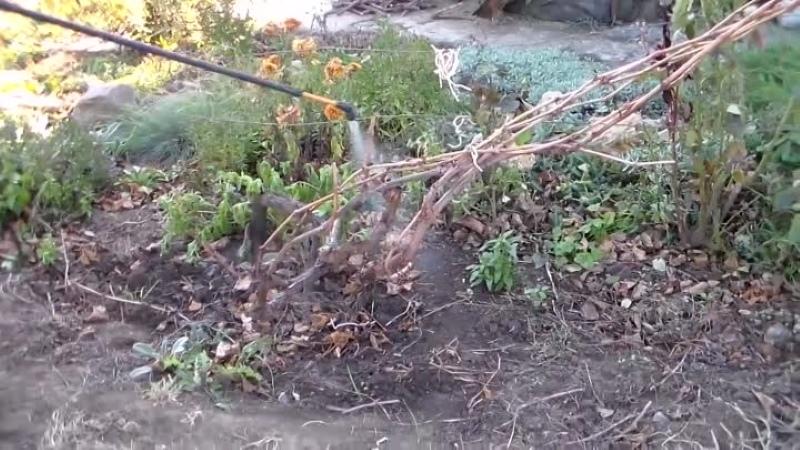Three in one: feeding, protecting and destroying fungi - processing grapes in autumn with iron sulfate
 At its low cost, ferrous sulfate is highly effective and can easily replace expensive analogues. This only plays into the hands of winegrowers who grow crops on an industrial scale. The treatment of grapes in autumn with iron sulfate allows you to immediately solve three problems: a deficiency of trace elements, weakened plants and fungal diseases. After all, the most difficult period ahead of the vineyard is wintering. And only completely healthy shrubs can survive it without damage. So, to give a full harvest next season.
At its low cost, ferrous sulfate is highly effective and can easily replace expensive analogues. This only plays into the hands of winegrowers who grow crops on an industrial scale. The treatment of grapes in autumn with iron sulfate allows you to immediately solve three problems: a deficiency of trace elements, weakened plants and fungal diseases. After all, the most difficult period ahead of the vineyard is wintering. And only completely healthy shrubs can survive it without damage. So, to give a full harvest next season.
Processing grapes in autumn with iron sulfate - for what purposes is it used

In addition, the drug effectively fights against fungal diseases. It is in the fall that they cause irreparable harm to plants. Many are sheltering their vineyards, and ideal conditions are created under the shelter for fungi. And by spring the bush is completely at the mercy of the disease. Grapes processed with iron vitriol leave healthy in the winter, since the fungus dies.
Autumn spraying will prevent the appearance or relieve grapes from such diseases:
- anthracnose;
- spotted necrosis;
- mildew;
- bacterial cancer;
- oidium;
- scab;
- powdery mildew.
When is it better to spray grapes with iron vitriol
 The drug is recommended to be used twice a season - in spring and autumn. In both cases, there is one caveat: it is impossible for the solution to get on the leaves. Due to the high concentration of iron when it comes into contact with the "living" part of the plants (young shoots, foliage), it causes burns.
The drug is recommended to be used twice a season - in spring and autumn. In both cases, there is one caveat: it is impossible for the solution to get on the leaves. Due to the high concentration of iron when it comes into contact with the "living" part of the plants (young shoots, foliage), it causes burns.
Therefore, in the fall, the vineyards are cultivated after leaf fall, from mid-October. Ideally after pruning, before covering the plants for the winter.
How to process a vineyard with iron vitriol - norms of use
The concentration of the working solution depends on the condition of the vineyard and the purpose of its use:
- For the prevention of diseases in adult plants, a weaker 3% solution is prepared by diluting 300 g of the drug in a bucket of water.
- If the grapes are already sick, you will need a stronger solution, 5% (respectively, 500 g of the drug per bucket of water).
Also, processing young bushes does not hurt, especially after pruning. It will help wounds to heal faster by forming a protective film on them. Such plants will bloom in the spring a couple of weeks later, which will reduce the risk of freezing from recurrent frosts.For spraying young grapes, a 1% solution is used (100 g of ferrous sulfate per 10 liters of water).